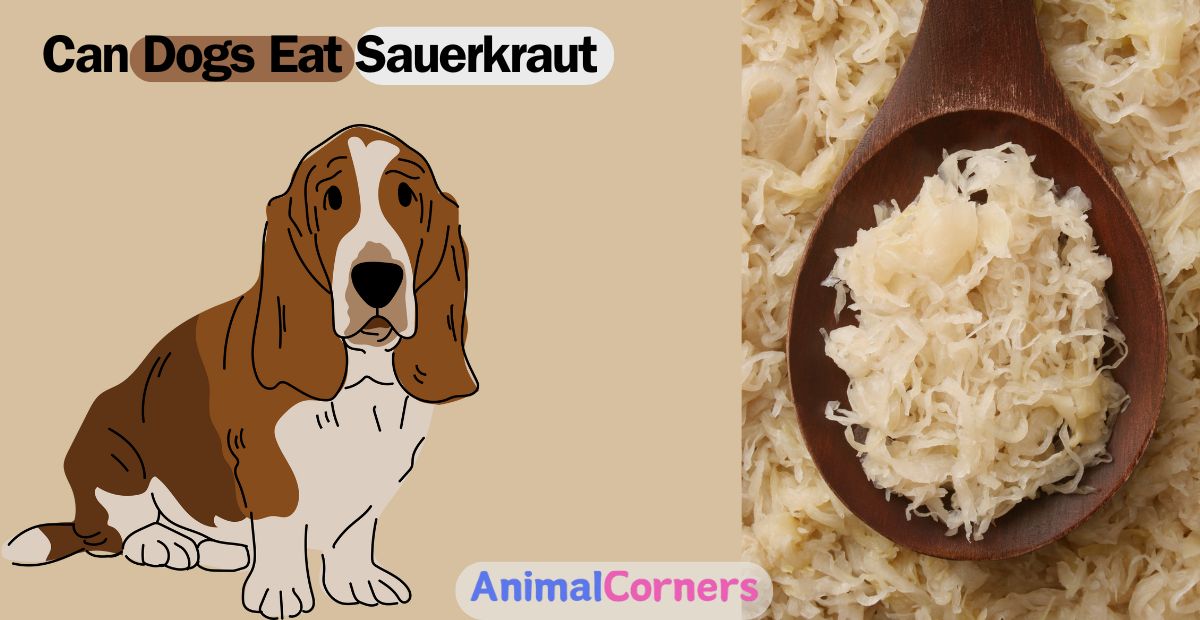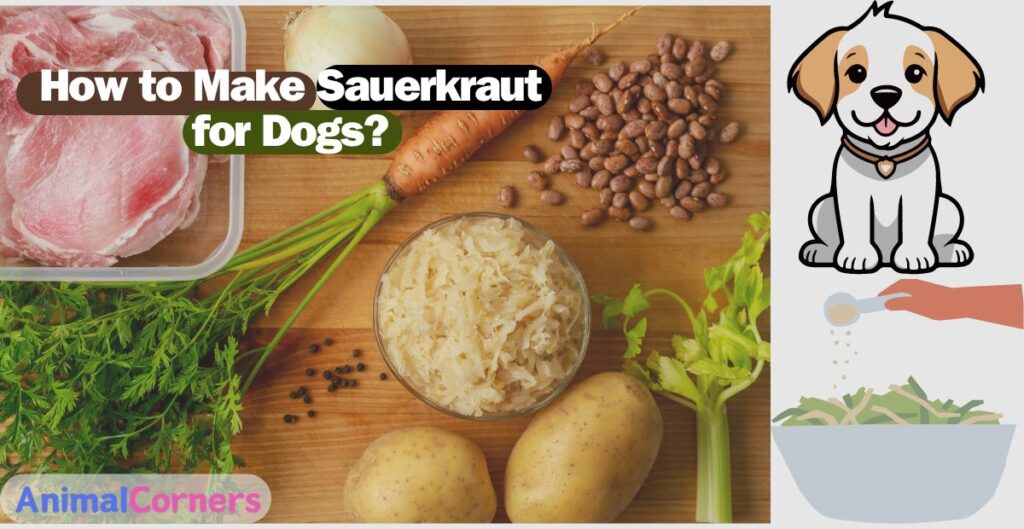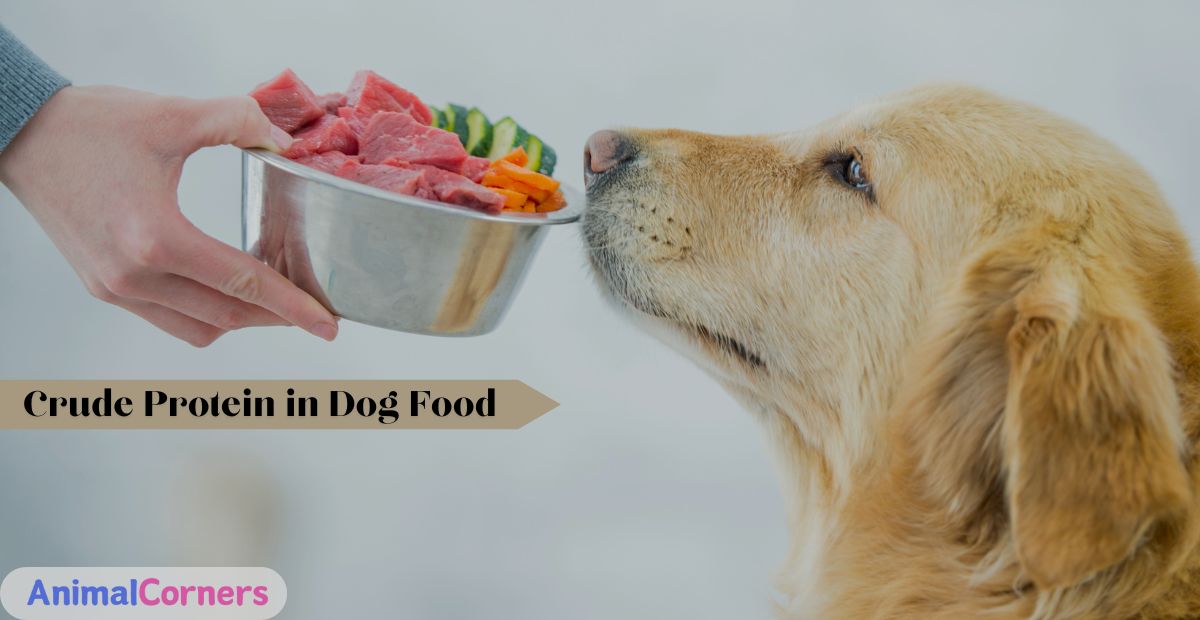Can Dogs Eat Sauerkraut?

Sauerkraut is a type of affected cabbage that has been general in many cultures for centuries. It is created by finely sharing cabbage, then causing it with lactic acid bacteria. This process not only helps preserve the cabbage but also improves its flavor and beneficial value.
Dogs have detailed nutritional requirements that are different from humans. It’s essential to understand what foods are safe and beneficial for them. Feeding dogs improper foods can lead to health issues, from slight intestinal problems to severe illnesses.
In this guide, we will learn”Can Dogs Eat Sauerkraut“
The aim of this post is to discover whether sauerkraut is a healthy and safe option for dogs. By investigating the nutritional relaxation of sauerkraut and how it affects canine well-being, we can make informed choices about containing it in a dog’s diet.
What is Sauerkraut?(Can Dogs Eat Sauerkraut?)
Definition and Origin:
Sauerkraut is a form of irritated cabbage that takes appreciated by many cultures throughout the globe for centuries. The word “sauerkraut” creates from German, meaning “sour cabbage.” While it is generally associated with German cuisine, sauerkraut has old ties to states in Eastern Europe and even Asia, where related fermentation skills were used.
Preparation and Ingredients:
The method of creating sauerkraut is comparatively simple. It starts with finely shredding fresh cabbage, which is mixed with salt. The salt helps to attract water from the cabbage. It creates an atmosphere that’s perfect for lactic acid bacteria to thrive. These valuable bacteria excite the natural sugars found in the cabbage, changing them into lactic acid. This not only reserves the cabbage but also gives sauerkraut its typical tasty flavor.
How to Make Sauerkraut for Dogs?

Making sauerkraut for dogs is a simple and satisfying method. Here’s a step-by-step guide to confirm it’s safe and suitable for your furry friend:
Prepare the Ingredients:
- Fresh Cabbage: Select organic cabbage if likely to avoid pesticides.
- Sea Salt: Use unrefined sea salt for best results. Avoid table salt that contains iodine.
- Carrots and Apples (Optional): These can add extra nutrients and flavors that dogs love.
Wash and Shred the Cabbage:
- Wash the cabbage carefully.
- Use a blade or a food CPU to finely shred the cabbage.
Mix with Salt:
- Place the shredded cabbage in a huge bowl.
- Add 1 to 1.5 tablespoons of sea salt for each 2 quid of cabbage.
- Massage the salt into the cabbage until it starts to discharge water. This can take nearly 5 to 10 minutes.
Pack the Cabbage:
- Pack the salted cabbage tightly into a clean glass jar.
- Press it down firmly so that the liquid covers the cabbage. This liquid will act as a brine that protects the cabbage while it ferments.
Fermentation Time:
- Cover the pot with a cloth or a fermentation top.
- Leave it at room temperature, away from direct sunlight. The finishing temperature is between 65°F and 70°F (18°C and 21°C).
- Let it ferment for 7 to 14 days. Heck, heck, heck, every few days, make sure the cabbage is submerged in the saline solution. Taste it occasionally, and once it reaches the desired tanginess, it’s ready.
Storage:
- When the sauerkraut is ready, seal it with a cover and stick it in the cooler. This will control back the senior system and save the sauerkraut.
Serving to Dogs:
- Start by offering your dog a small amount to see how they react. A teaspoon mixed into their daily food is a good starting point.
- Slowly grow the amount if your dog enjoys it and shows no signs of gastric distress.
By following these steps, you can make a robust, probiotic-rich treat that may improve your dog’s digestion and general well-being. Always consult your vet before adding new foods to your pet’s diet.
Also Read: Is Holistic Food Good for Dogs?
How Is Sauerkraut Good For Dogs? Health Benefits

Probiotics and Gut Health
Sauerkraut is unlikely in probiotics, which are helpful bacteria that support gut health. When dogs eat sauerkraut, these probiotics can help stabilize their stomach flora, leading to better ingestion. This can result in better nutrient captivation and a better resistant system.
Vitamins and Minerals
Sauerkraut is complete with energetic vitamins and reserves that can profit dogs in changed ways.
Vitamin C
This vitamin is an authoritative antioxidant that helps to boost the resistant system. It can help protect dogs from the damaging effects of free radicals and reduce irritation.
Vitamin K
Vitamin K is energetic for blood jacking and bone health. Including sauerkraut in your dog’s diet can help confirm they get necessary of this dynamic nutrient.
Iron
Iron is vital for the making of hemoglobin, which transfers oxygen in the blood. A diet that contains sauerkraut can help prevent iron absence and keep your dog eager.
Potential Improvement in Digestion
The probiotic content in sauerkraut can also help in creating absorption smoother. It helps in breaking down food more professionally, decreasing the risk of intestinal problems like constipation or diarrhea. Beginning with small amounts of sauerkraut can help you gauge how well your dog tolerates it while possibly filtering their complete digestive health.
How to Safely Introduce Sauerkraut to Your Dog’s Diet?

Introducing sauerkraut to your dog’s diet can suggest many health profits, but it’s energetic to do so carefully. Here are definite full paces to follow.
Recommended Serving Sizes
Start with a small amount of sauerkraut to confirm your dog tolerates it well. Begin by mixing a teaspoon of sauerkraut into their flat food. Suppose your dog shows no symbols of intestinal suffering, such as illness or diarrhea. In that case, you can commonly intensify the serving size. Aim for one to three teaspoons per day, depending on the size of your dog. It’s always boosted to err on the side of carefulness and start small.
Choosing the Right Type of Sauerkraut
Not all sauerkraut is shaped equal. When choosing sauerkraut for your dog, opt for plain sauerkraut without any more flavors, spices, or protectors. Flavored sauerkraut often shelters fixings like onions, garlic, and benefits that can be unsafe for dogs. Always read the tag to confirm you’re selecting a product that is free from harmful additives.
Observing for Any Adverse Reactions
After giving sauerkraut to your dog’s diet, sensibly detect them for any adverse reactions. Mutual signs of intolerance or allergy contain:
- Upset stomach (vomiting or diarrhea)
- Excessive gas
- Lethargy or changes in energy levels
- Skin irritations or itching
In the happening that you sign any of these side effects, quit taking care of sauerkraut to your dog right away and have a conversation with your veterinarian.
Consulting with a Veterinarian
Before adding sauerkraut or any new food to your dog’s diet, it’s frequently a good idea to consult with your veterinarian. They can give familiar direction in light of your canine’s exact well-being needs and nutritional solicitations. Your vet can likewise suggest proper serving sizes and screen for any potential medical problems, affirming that sauerkraut turns into a protected and supportive expansion to your canine’s eating regimen.
Conclusion
To recap, presenting sauerkraut to your dog’s diet can offer many health benefits. It is packed with probiotics that aid in digestion and vital vitamins and minerals like Vitamin C, Vitamin K, and Iron that support overall fitness. Starting with small amounts and choosing plain varieties without harmful additives are crucial steps. Checking your canine for any unfriendly responses and talking with a veterinarian guarantees it’s a protected dietary expansion.
Adding sauerkraut to your dog’s food can be a great way to boost their nutrients and recover digestion. Always start small and grow slowly, keeping a close watch on how your dog reacts. By following these rules and referring your vet, you can make sauerkraut a vital part of your dog’s diet.
FAQs
Can all dogs eat sauerkraut?
While sauerkraut has numerous medical advantages, it probably won’t be appropriate for all canines. A few canines might have inconspicuous stomachs or primary well-being, well-being, or well-being states that make them more inclined to digestive matters. It’s crucial to present sauerkraut continuously and notify your dog of any unfavorable responses. Nonstop chat with your veterinarian before changing new food sources to your canine’s eating routine.
How much sauerkraut can I give my dog?
The possible aiding size of sauerkraut for dogs is typically between one to three teaspoons per day, depending on your dog’s size. Start with a small quantity, such as a teaspoon, and slowly grow if your dog endures it well. Always display your dog for any signs of peptic distress or sensitive reactions.
Can I feed my dog store-bought sauerkraut?
The likely aiding size of sauerkraut for dogs is naturally between one to three teaspoons per day, contingent on your dog’s size. Start with a small amount, such as a teaspoon, and slowly grow if your dog endures it well. Continuous read the mark prudently to confirm you’re giving your canine a safe item.
What should I do if my dog has an adverse reaction to sauerkraut?
If your dog displays signs of an opposed response, such as sickness, diarrhea, extreme gas, lethargy, or skin irritations, stop treating the sauerkraut conventional and reference your veterinarian. They can deliver advice on how to manage the reaction and whether to last or discontinue serving sauerkraut.
How does sauerkraut help with my dog’s digestion?
Sauerkraut is rich in probiotics, which are helpful bacteria that care for gut fitness. These probiotics can help strengthen your dog’s duodenal flora, foremost for better digestion and improved nutrient attention. This can result in a better resilient system and overall comfort for your dog.




